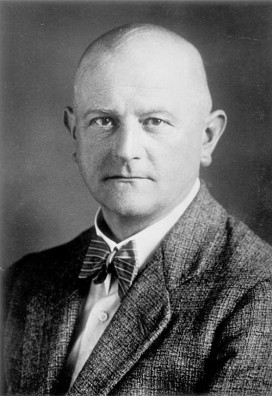
1934
After Hitler came to power, he confronted Christians in Germany with uncomfortable choices. At first, few pastors seemed to recognize where Hitler was taking the church. He sought to co-opt both Lutheran and Reformed churches to support his National Socialist Party. Many church people supported him. Sick of the decadence that had characterized the previous government, the “Weimar Republic,” many hoped that the Führer, with his emphasis on history and tradition, might usher in spiritual renewal. Others feared the Communists more than the Nazis.
Playing on the fears and longings of churchgoers, Hitler nationalized the church under a single bishop with a Nazi-inspired constitution. German churches were ordered to eject Jewish Christians, to accept Hitler as a prophet, and to accept German racial consciousness—which exalted the Aryan race above all others—as a second revelation. The so-called “German Christians” elected Ludwig Müller, an ardent Nazi, as their “Reichs-bishop.”

To keep their jobs, hundreds of clergymen accepted Müller’s racist and political restrictions. But a minority of church leaders did not. Martin Niemoller brought them together, inviting all German pastors to join what he called the Pastors’ Emergency League.
Karl Barth, Dietrich Bonhoeffer and others joined him. These men insisted that the church belonged under the headship of Christ, not the state, and must obey God rather than national leaders. They urged German pastors to bind themselves by Scripture and centuries-old, reliable confessions of faith.
To their credit, once the stakes were made clear, many pastors resigned from the state church. A number of Protestants who stood against the Nazis gathered at the city of Barmen to discuss the situation and prepare a response. They called themselves the Confessing Church because they clung to the old confessions of faith. Niemoller and Bonhoeffer went to prison; Bonhoeffer died there. Barth fled to Switzerland. A number of Roman Catholic priests also resisted the Nazis. Some, like Bernhard Lichtenberg, died in concentration camps.
On this day, 4 January 1934, Reichs-bishop Müller tried to silence critics of the Nazi church, issuing a “muzzling order” forbidding them from speaking about the church-state issue from their pulpits. However, the Confessing Church refused to be silenced.
In May, they issued the Barmen Declaration, whose primary authors were famous Reformed theologian Karl Barth and Lutheran theologian Hans Asmussen. One of its key statements read, “We reject the false doctrine that beyond its special commission the church should and could take on the nature, tasks, and dignity which belong to the state, and thus become itself an organ of the state.”
The leaders of the confessing church’s deepest concern was to call the entire German church to a much-needed renewal. This renewal did not take place until after the fall of Hitler’s Third Reich.
1947
“As a matter of fact, as I think back over the evidences of the Lord’s guidance in my own life, I feel ashamed that my faith is not a more radiant, contagious thing.”
Would you be able to say that if your father had died when you were four? If your stepfather had been a jealous alcoholic who made life so miserable you tried running away to sea at fourteen?
Peter Marshall, the man who wrote that line, was born a few miles from Glasgow in Scotland. As a boy, he was inspired not only by heroic tales of the sea, but by the life of the missionary David Livingstone. Shortly after his stepfather kicked him out of his home, he offered himself for mission work in China.

Without financial support, he could not fulfill his educational requirements. But he had made a definite commitment to work full-time in the Lord’s service. He began taking night classes. It was hard. Sometimes he failed courses, having to work nine hours a day.
God led. A cousin urged him to go to the United States, assuring him he could expect greater opportunities there than in his native land. The cousin would pay Peter’s way. Peter prayed. For three weeks he pestered God about it. Then one day he knew God meant him to go.
In America, things proved tougher than he expected. He had to dig ditches. He had no friends. He had no church. Then God sent him an offer from Alabama. “Within the space of a few short weeks, I had joined the First Presbyterian Church, had been recommended by the Session as a candidate for the gospel ministry, had spoken at a prayer meeting, had been elected president of the young people’s league, had become interested in the Boy Scouts of that church, and had been asked to become the teacher of the Men’s Bible Class.”
God supplied the money for his education. He sent Peter to specific pastorates. The last of them was at the New York Avenue Presbyterian Church in Washington.
His sermons so thrilled the Capital that hundreds of people had to be turned away from the church each Sunday. There was life in his words, because, as he expressed it, Jesus had tapped him on the shoulder and his life turned around.
On this day, January 4, 1947 the Senate appointed Peter Marshall to be their chaplain. Senators used to come early just to hear him pray. And this is how he prayed: “O Lord our God, even at this moment as we come blundering into Thy presence in prayer, we are haunted by memories of duties unperformed, promptings disobeyed, and beckonings ignored. Opportunities to be kind knocked on the door of our hearts and went weeping away…”
Marshall was chaplain only a couple years. He died of a heart attack in 1949 at the age of just forty-five years.
